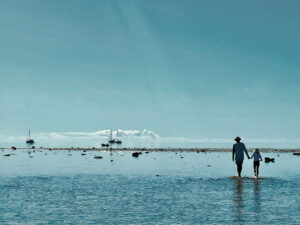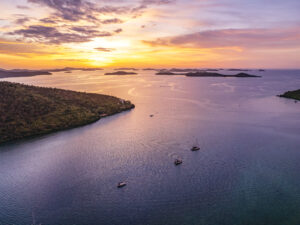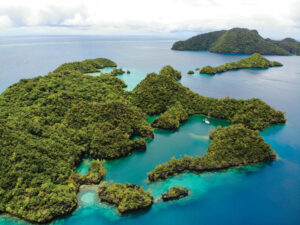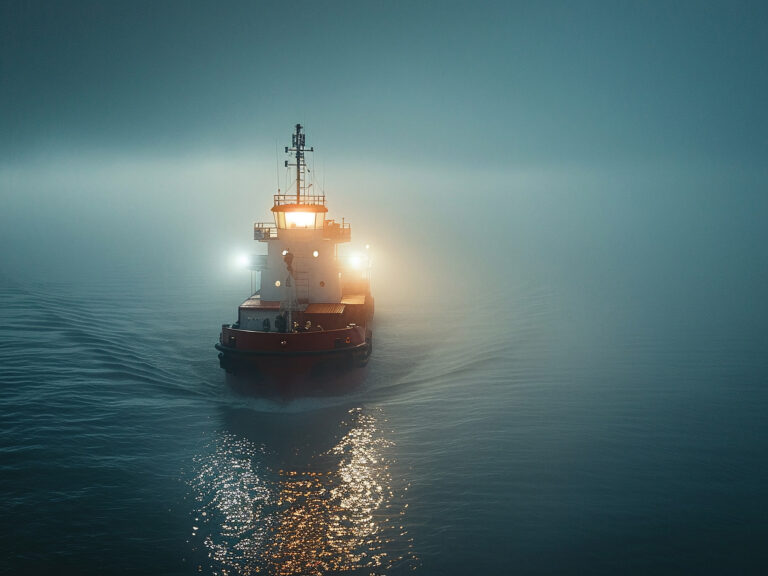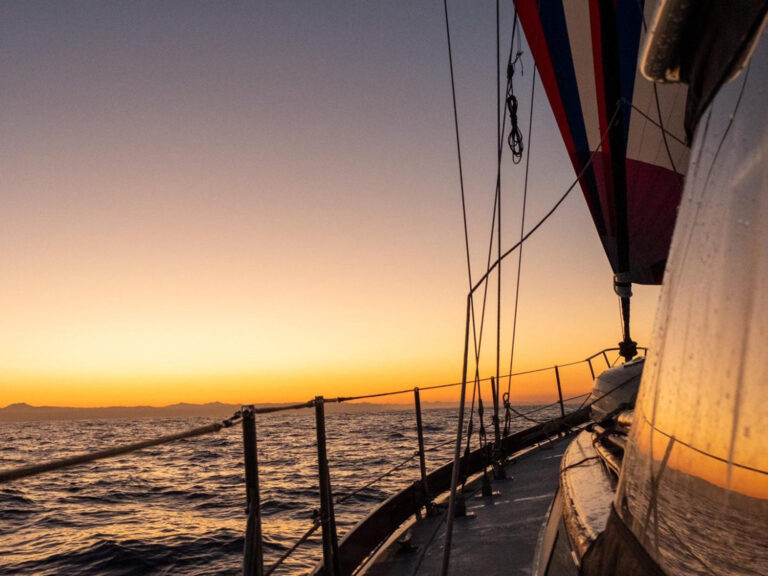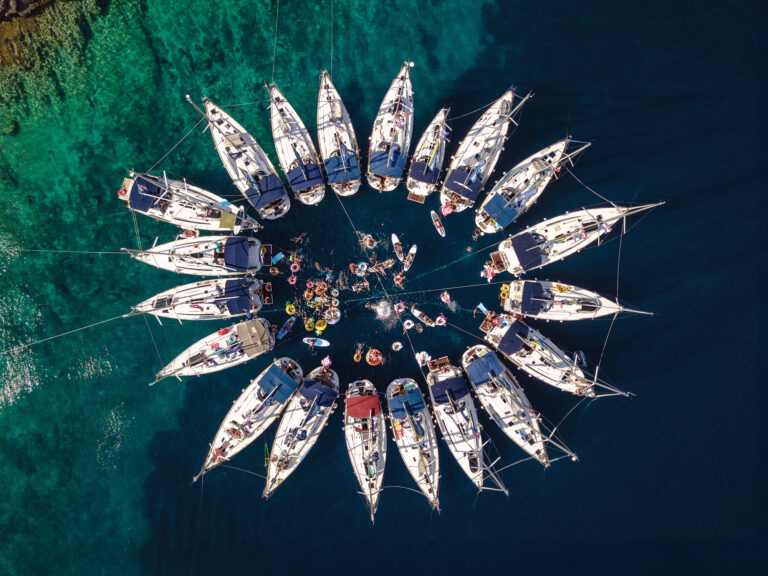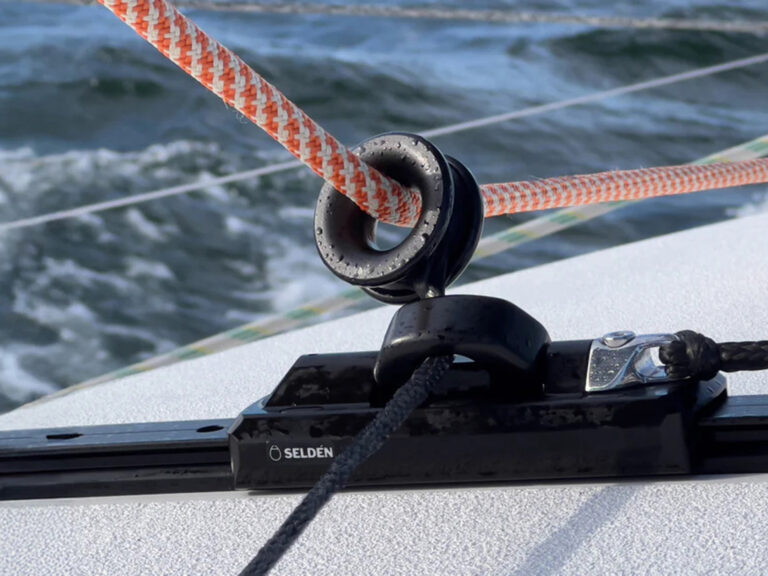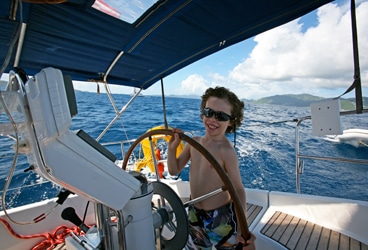
Footloose charter BVI sailing
Four miles out of Road Town, on Tortola, in the British Virgin Islands, we were engulfed by a squall. It was our first, against which all others were compared and none were to measure up. We were closing on Dead Chest.
“There it is,” I was saying to Gus. “Dead Man’s Chest.” That’s what Gus kept calling it. “Right there. Dead ahead.”
“The real Dead Man’s Chest?” Gus, 8 years old, asked me for the 10th time. But the heavy skepticism had noticeably moderated.
“What did Winston say?” I replied. Winston Nibbs, who’d briefed us on boat and chart at Footloose Sailing Charters only an hour or so earlier, had convincingly colluded with me when I’d pointed out the islet off Peter Island’s eastern shore, clearly marked Dead Chest on the chart. “That’s the real one,” Winston had said, with zero twinkle in his eye—well, I could see it, but I don’t think Gus could—and the gravitas of James Earl Jones. He compelled belief.
On approach, the tiny cay looked forbidding. An unrelievedly rocky shore encircling vertical cliffs rising to a small patch of weeds and grass.
“How did the pirates get ashore, Daddy?”
“Uhh . . .”
But then the squall—which of course I’d seen approaching; it hadn’t looked like much—closed around us with an impenetrable veil of thick horizontal rain and, I swear, near gale-force wind. I wasn’t really worried about hitting Dead whatever-it-was, close by but suddenly invisible in the rain, but I was trying, rather late, to haul in a big chunk of the madly flapping headsail, which wasn’t too difficult on the 35-foot sloop Aurora, a simple Beneteau. And Gus had begun screaming.
“This is normal!” I shouted conversationally, reassuringly. “Absolutely normal for the Virgin Islands, Gus. It’ll pass in a minute.”
Before this, I’d taken Gus sailing a few hours at a time on a 24-footer on Penobscot Bay, in Maine. Apart from those excursions, his only maritime reference, his only notion of what to expect on our week’s charter, had come from the Pirates of the Caribbean films.
I needn’t have worried. Gus was leaping about in the cockpit, bundled in his life jacket, in that pure state of hyper-joy which, after childhood, is enjoyed only by people who are insane or on drugs. He was screaming: “This is real sailing!”
When the wind and rain and the real sailing abated somewhat, Gus turned to me and said, “Daddy, this is the best day of my life.”
A little context. Those brochure photos of kids sailing on charter boats always include two parents. Gus’s mother and I are divorced. She feared something would happen to him if I took him sailing. I have the same fear, all the time, wherever he is, like when his mother takes him skiing. Being a parent, as any parent will know, even a married parent, means that however anxious you are, at some point you’re going to have to let that kid engage in some potentially hazardous, potentially even deadly activity—sailing, rock-climbing, bicycling, going to school. Life.
Most parents come to some agreement and learn to accommodate their fears. When they agree, it’s easy. When they disagree, any activity can come under the closest and most prejudiced scrutiny. No matter that I was once a U.S. Coast Guard 100-ton-licensed charter/delivery/commercial captain, had lived aboard boats for many years, had crossed the Atlantic three times. Gus’s mother didn’t want me to take him on a week’s charter vacation in the Virgin Islands.
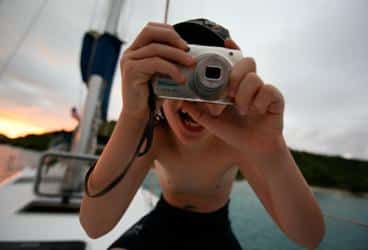
Although I have joint custody of my son, I finally had to go to family court in the state in which we live—Arizona, not a noted seafaring state—to ask for permission to take Gus on this trip. The judge, a mother herself, professed alarm at the idea. To my dismay, my experience as a sailor counted for very little. The concern shared by Gus’ mother and the judge boiled down to the inescapable fact that I was proposing that Gus and I would be alone together on a boat for a week. What would happen to him if something happened to me? So Gus’ mother’s attorney and the judge quite reasonably argued. Nothing’s going to happen to me, I spluttered in court, horribly aware for the first time that the judge’s maritime reference was probably not much different than Gus’. “There’s the radio, Channel 16, which I’ll show him—.”
But the judge interrupted me. “They’re on TV all the time, these people in trouble on boats,” she said. “Boats are dangerous.”
She knew this for a certainty. What, I asked the judge, if I wanted to take Gus camping for a week?
“Just the two of you, alone?” she said, looking at me as if I were mad. “Then I would ask the same question: What’s going to happen to Gus if something happens to you in the middle of a forest or desert?”
He’d have a cellphone of dubious use, a compass, some Clif bars—he’d be in big trouble. “But the Virgin Islands—.”
She cut me off. “I’m going to have to take all of this under advisement.”
Gus was disappointed to see our thrilling weather visibly drifting away to leeward. “Will we have another squall?”
“Maybe.”
“Will we?” he insisted.
“Probably, Gus.”
“Do you promise?”
“I can’t promise.” I’d do my best to avoid them, but “we’re almost certain to have another. It’s what happens here.”
In gentle and sunny conditions, we circumnavigated the inscrutable Dead Chest, singing, “Fifteen men on the Dead Man’s Chest, yo ho ho and a bottle of rum!”
We sailed on to Peter Island’s Great Harbour, anchored, and dinghied ashore to look for signs of buried treasure. We found them everywhere and did some digging. As the sun set, I remembered the speed of the tropical twilight, and we returned to the dinghy and sped back to the boat to make pasta, Gus’ favorite food.
We had a cellphone with us and Gus’ mother called. He told her excitedly about the real sailing and Dead Man’s Chest and she heard how happy he was. I had dreamed of this, exactly this, for eight years: Gus and I sailing in the Virgins. Where I’d lived on an old, engineless wooden sailboat for several years in the late 1970s; where I first learned to sail. Except for a few yacht deliveries in the 1980s, I hadn’t been back since. I knew much would be changed, but it was always here that I’d pictured myself introducing my son to boats, to sailing, to a glimpse of a way of life, in what must still be the gentlest and most forgiving of all cruising grounds. Where nothing would go wrong, I believed; where I could take the best possible care of him and set a precedent for future happy times on boats. Such a thing would seem to be a parent’s inalienable right.
The next morning, Gus was eager to put to sea. We raised the main, which was perfectly managed at all times by that ancient and peerless invention, lazy jacks. Gus raised our anchor with the electric windlass controls—simpler to operate than a Wii remote—and we floated out of Great Harbour. We were headed to Trellis Bay, off Beef Island. Out in Sir Francis Drake Channel, we met the waves and wind on the nose, trimmed sail, heeled, and beat northeast in mildly plunging tacks. Gus was thrilled when he heard the coffee percolator, which I’d forgotten to put in the sink, crash to the sole below. “This is real sailing!” he yelled.
Then he did some real sailing. “See those little bits of red string at the front of the sail? We want to get them flowing horizontally. Watch.” He helped me crank winches, trim sails. He steered, getting the hang of the compass and fixing the bow on some distant mark.
From a sailor’s point of view, astonishingly little has changed in the Virgin Islands over the last 35 years. The unexcelled sailing, the weather, the beauty are all as they were. There are a lot more boats, of course. But most noticeable to me was that everywhere that I’d once dropped an anchor for free, there are now mooring fields. You pick up a mooring at $25 to $30 a night, or you drop way out in 60 feet.
We did both during our week, and it was fine. It’s great when you have a ton of chain and an electric windlass, which Footloose had supplied. But the Virgins Islands are no longer a place for young, boat-crazy youths in old wooden boats to hang on their hooks for years on end, reading, writing, dreaming, living on a hundred bucks a month and still having enough for cold beer ashore. And time enough. I wonder if Gus will ever know periods in his life as simple as I knew then, when my deepest fears ran no farther than ground tackle.
“Daddy, where’s the horn?”
“The horn?”
“Winston said to use the horn if you really want to get noticed.”
I’d noticed Gus noticing the girls of all ages jumping in and out of the water from a trimaran moored beside and a little ahead of us in Trellis Bay. But so far, they hadn’t noticed Gus, despite his half an hour of insouciant lounging on the bow.
“I think Winston meant if we were in trouble, Gus. Like if we hit a rock or something.”
“Well, how do you get noticed?” he said, betraying serious frustration.
“You mean the girls over there next door?”
“Yes!”
I suggested an old sailor’s trick. We would put on masks and flippers and casually swim over there, as if in thrall to the Silent World below, and accidentally bump into them. Gus admired the plan. But just as we got our gear and sat on the dive platform on the stern, the girls of all ages and several men got into their dinghy and motored off to Beef Island.
“Daddy!? What’ll we do?”
“Sometimes they get away, Gus. Maybe we’ll get to see them later.”
We were both keeping logbooks. Gus’s entry that afternoon reads: I saw some girls that I liked I tryed to get there atainchon but it was no use.
_

_
Later, in the quick onset of civil twilight, we also motored ashore. A small boat’s tidy interior on a still evening, the nonpareil setting for the examined life, isn’t a natural environment for a small boy. Gus needed action, girls, or brightly-colored moving objects. But ashore, Trellis Bay village, whose jaunty ad in the cruising guide promised art studios, shops, cafés, and “fireball” beach parties, was a disappointment. I was reminded of Noël Coward’s remark on his only visit to New Zealand: “It was closed.”
Back in the dinghy, we motored out to Bellamy Cay. When we arrived at the rickety dock, the outboard, which usually stalled in idle, this time didn’t stall, so I removed the emergency-kill-thingie-on-a-lanyard that slots under the choke pull. I should’ve put it back.
As worn and charming as an old wooden boat and a relic of an older Virgin Islands, the Last Resort was open for dinner. While our table was prepared, I sat at the bar with a cold one, and Gus made friends with a perfectly white cat.
I was peting a white kitty then the girls came in. I was so eager to meet them it was like a knife to my heart. [There was a particular girl, about his age.] After there diner she went to pet the kitty. [I suggested that Gus introduce himself.] When I came up and interduced myself my name is Gus she just said C O O L witch I was not expecting. I was very bumed out.
I told him I knew how he felt, but that didn’t help him. Then the girls left.
Then it got a lot worse.
We left and it started to rain like crazy I got soaked. The docks were loose and I was afraid that I would fall into the water. Then when I got into the dingy daddy fell down.
My lawyer and I were both surprised by the judge’s decision. Realizing that this was what Gus’ father did and what he had to offer his son, she said in a telephone hearing with the two lawyers, she would put aside her own fears for the child and allow the trip if I’d submit—and if she approved—an emergency plan detailing what Gus would do and how I would prepare him in case anything happened to me on board the boat. I submitted my plan: I’d familiarize Gus with VHF Channel 16; I’d ensure that he knew at all times where we were so that he could provide our location over the radio; the boat itself would be moving only at five or six miles per hour and would undoubtedly slow and stall if unattended; help would reach Gus quickly. I don’t think anyone read my plan.
In pouring rain—we hadn’t brought jackets—I untied the painter and stepped into the dinghy. My foot slipped on the wet rubber. Slipping thus in a rubber dinghy, getting your head hit by the main boom, mashing fingers in anchor chain—these are some of the generally beneficent learning experiences one continues to absorb while sailing. But I couldn’t help seeing myself through the eyes of the judge as I crashed headlong and heavily at Gus’ feet on the hard floor panel.
Gus anxiously asked if I was all right. I’m fine, I said, as I sat up. I tried to start the outboard. Of course the kill-thingie was hanging by its lanyard. It was black out, the few lights from the Last Resort blurred in driving rain and growing dimmer as we drifted away from the dock. Again and again I thought I’d slipped the thingie under the choke, and I pulled and pulled the cord, but the engine wouldn’t start. Gus began to cry. Loudly.
Finally my fingers figured it out, the engine started, and we bumped our way through the anchorage, Gus crouching on the floor and crying inconsolably. “It’s OK, Gus,” I chattered encouragingly. “Everything’s fine, sweetheart. We’re on our way. We’ll be back at the boat any minute.”
But Gus had seen me fall, hadn’t understood the struggle with the engine, and was cold and wet, and the few bouncing lights in the squally dark by which I navigated us back to our boat meant nothing to him. He’d glimpsed the vertiginous abyss between the plan and the reality. And I was mortified at what had happened and by the thinness of the veil that separates control of events from the sum of all judges’ and mothers’ fears.
Back aboard the boat, I rubbed Gus down with a towel and filled him with milk and Chips Ahoy cookies, and we cuddled up in the forward berth and watched several strangely comforting episodes of Alfred Hitchcock Presents on his DVD player. Comfort and security regained, Gus was magnanimous in his account of our trials. To him it was something that we’d shared, not a near misadventure precipitated by my inattentive footwork.
Thanks to my wonderful daddy he got us home.
We spent two days in the playground of Gorda Sound.
We went snorkling at east end of prickly par Island. I was full of wonder I even saw a barrucoda he was just staring at me then he swam away. The reef looked like the movie finding nemo.
What better? Gus’s log proved insufficient a record, and in a blue composition book he began to write and illustrate a wide-ranging textbook titled Sea World.
Ashore, at the Bitter End, we played pool and foosball and ate hamburgers and frozen Snickers bars and had a bang up Thanksgiving dinner. The Bitter End also provided daily camp activities for kids, and Gus spent an afternoon of competition sandcastle building with creatures of his own kind. I, too, was supposed to have some time to myself. I had a book to read. But mostly I sat in a chair and watched Gus as he played.
An 8-year-old boy is an amazing creature. Part puppy, part Barbary ape. Morphing like time-lapse photography before one’s eyes. I was a late father, and I remain amazed by my son and that I’ve been granted one. I believe I’m as afraid for him as his mother. I spent this week I’d long dreamed of tense with apprehension for Gus’ safety—now that I’d been granted absolute charge of it—and chastened by a sense of near miss at Trellis Bay. But I was also sure I was doing the right thing. There is nothing—absolute nothing—half so much worth doing as simply getting a kid onto a boat. And I saw how much he loved it.
On our last day, Gus trailblazed our scrambling, wading, paddling route through the pools and boulders of The Baths like Meriwether Lewis. Or like a seal pup. On many days he’d said to me, “This is the best day of my life.” That day, he looked at me seriously and said, “Daddy. This is the best day of my life.”
It might have been mine, too.
CW contributor Peter Nichols is the author of the memoir Sea Change, the nonfiction chronicle A Voyage for Madmen, the novel Voyage to the North Star, and other books. He lives in Northern California.

